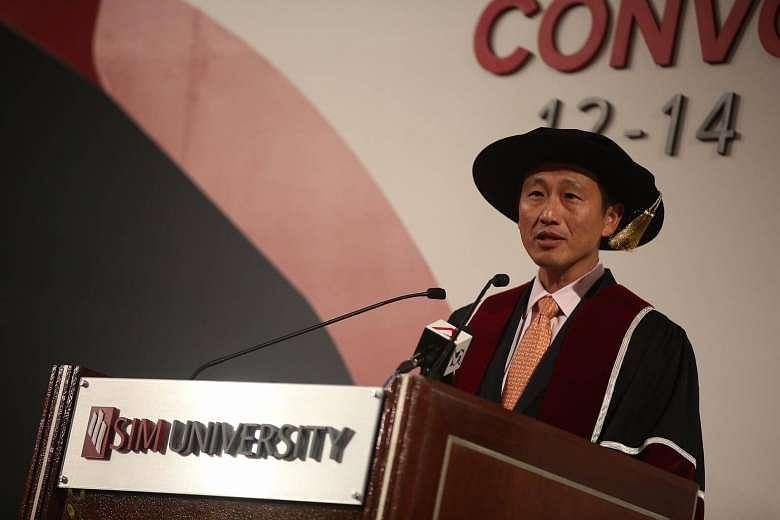With a focus on applied learning and an eye on SkillsFuture, the privately run SIM University (UniSIM) is set to become Singapore's sixth autonomous university, if a government proposal is accepted.
The Ministry of Education (MOE) then intends to fully fund the university and bring it within its ambit. It has discussed the arrangement with the governing council of the Singapore Institute of Management (SIM), the membership organisation that oversees UniSIM.
The proposal will be presented at a general meeting of SIM members for their approval, said Acting Minister for Education (Higher Education and Skills) Ong Ye Kung at UniSIM's convocation yesterday.
If the move is accepted, UniSIM will occupy a unique niche in the landscape of Singapore's autonomous universities, now comprising the National University of Singapore, Nanyang Technological University, Singapore Management University, Singapore University of Technology and Design, and Singapore Institute of Technology (SIT).
Autonomous universities receive government funding and are subject to government oversight but have the flexibility to set their own direction and differentiate their educational offerings.
Mr Ong pointed out that UniSIM has supported generations of working adults and mature learners and become an expert in addressing the needs of those who juggle work and study commitments. "In this era of SkillsFuture, it is timely to consider putting in the concrete and making this a permanent and recognised path in our education and training landscape," he said.
UniSIM, which has a campus in Clementi Road, will continue to focus on applied learning in the domain of social sciences, said Mr Ong. It will target both adult learners and younger students.
"Just as SIT will focus on applied programmes in science, technology and engineering, UniSIM will focus on social sciences, and preparing students for socially related careers," said Mr Ong. "This will include social work, human resource, psychology, early childhood education and also law, focusing on family and criminal law."
Right from the start, UniSIM has tried to offer upgrading options for working adults. MOE provides the same level of subsidies for Singapore citizens enrolled in UniSIM's part-time and full-time degree programmes as it does for undergraduates in other autonomous universities. Besides 490 full-time students, UniSIM has 13,200 part-time students, mostly working adults.
UniSIM president Cheong Hee Kiat said that with full funding by MOE, UniSIM will have more resources to support its students.
It intends to keep its focus on applied learning and customising courses for working adults.



